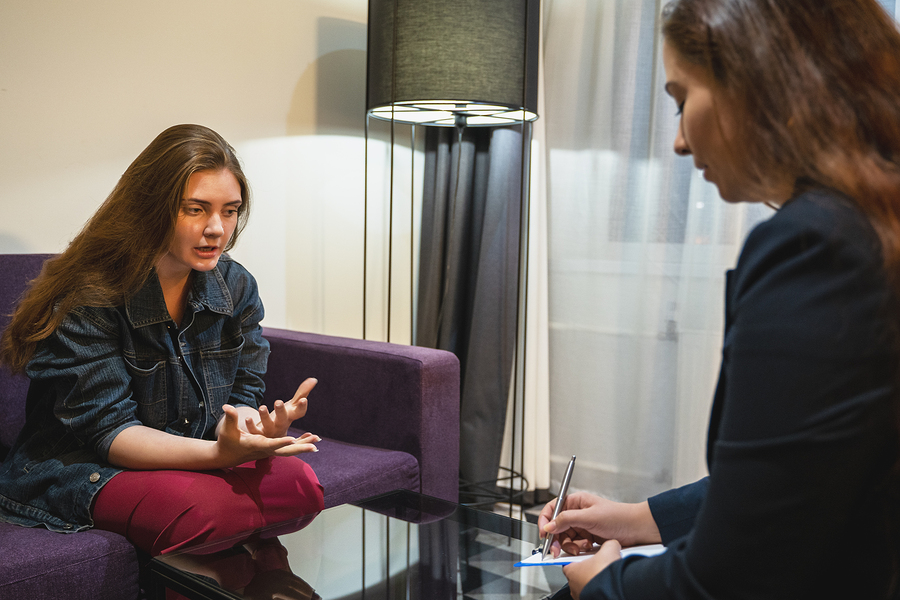It is a common misconception that therapy is only for people with “serious” issues. In reality, people use therapy for a myriad of reasons, from personal development to improving their relationships. Therapy is becoming incredibly common, with celebrities like Demi Lovato and Emma Watson proudly acknowledging the positive impact it has had on their lives.
Seeing a psychologist is something that can benefit virtually all of us – helping us to better understand ourselves and those around us and live life to its fullest. Of course, if you do think you have a mental health disorder such as anxiety, depression, PTSD or ADHD, therapy can have a massive positive impact on your health and wellbeing.
This article shares the three best psychologists in the Sunshine Coast and demystifies what therapy actually involves.
The top 3 therapists on the Sunshine Coast
Here are the 3 leading psychologists in the Sunshine Coast:
- Integrated Wellness Clinic
- Suncoast Christian Health Centre
- Mindfulness Practice
1. Integrated Wellness Clinic
Contact:
Website: www.integratedwellnessclinic.com.au
Website: www.psychologysunshinecoast.com.au
Address: level 5/505 45 Brisbane Rd, Mooloolaba QLD 4557
Address: 51/55 Bulcock St, Caloundra QLD 4551
Phone: (07) 5458 4800
As their name suggests, Integrated Wellness Clinic is a Sunshine Coast based psychology practice that uses an integrative approach to wellbeing. They strive to help clients understand the reasons why they (and those around them) think, feel and act as they do. They provide therapeutic treatment and tools to support clients in coping with life’s challenges and learning to live a happy, meaningful life.
They are an evidence-based practice founded on principles of empathy and non-judgment, and specialise in child, teen and adult psychology covering:
- Stress
- Anxiety
- Depression
- Autism
- OCD
- Grief
- Anger management
- Trauma
- Relationship issues
- Family therapy;
- And more.
They use cognitive behavioural therapy (CBT), positive psychology, reality therapy, mindfulness and eye movement desensitisation and reprocessing (EMDR), amongst other techniques.
2. Suncoast Christian Health Centre

Contact:
Website: www.scchealthcentre.com.au
Address: 3 Lavarack Cres, Buderim QLD 4556
Phone: (07) 5445 1062
So whether you’re experiencing prolonged bouts of stress or think you might have an anxiety disorder, the team at SCHC can help. Their experienced clinical psychologists offer confidential, client-focused support for a range of issues.
3. Mindfulness Practice
Contact:
Website: www.mindfulness-practice.com
Address: Ray Street, Sunshine Beach, Noosa Heads QLD 4567
Phone: 0420 221 461
Mindfulness Practice is a private clinic based in Noosa, and aims to help clients reach their potential using a holistic body and mind approach. They offer a number of techniques, including:
- Mindfulness-based cognitive behavioural therapy
- Acceptance and commitment therapy
- Eye Movement Desensitisation and Reprocessing
- Functional Analytic Psychotherapy
- Meditation; and
You might want to try combining several of these techniques for optimal effects. Mindfulness Practice is an excellent option for people struggling with anxiety, depression, stress, or just feeling lost in life. Their caring and compassionate clinical psychologists can help you get back in touch with yourself and become empowered to live your ideal life.

Busting the myths around therapy
Here are some of the myths about seeing a psychologist that are fast being dispelled:
Myth: You need to have a psychological disorder to go to therapy
Fact: While having a psychological disorder is definitely a reason why many people attend therapy, this doesn’t mean that everyone that visits a therapist has a disorder. A large percentage of people seek out therapy to get support through a breakup, relationship difficulty, work stress, loss of a loved one or some other challenging time. People also use therapy as a way to develop themselves and reach their personal or work-related goals – they might not necessarily be struggling too much at all and simply want to improve their lives.
This is an unfortunate myth, as many people put off going to therapy for years in the belief that they aren’t struggling ‘enough’ to attend – which can make their situation worse by exacerbating the problems they have. There is no shame in wanting a better life.
Myth: Therapists are just cheerleaders
Fact: Platitudes like “you can do it” and “don’t worry, be happy” just don’t cut it anymore – and psychologists have known this for decades. Psychological therapy aims at helping clients develop a realistic, non-judgmental view of themselves and the world around them. While they do provide empathy and encouragement, they are also ready to challenge you and help you grow. This may involve becoming aware of your weaknesses and working on them, for instance.
Myth: I can’t afford therapy.
Fact: If you live in Australia, there is a good chance you’re eligible for 10 free mental health care sessions annually under Medicare. Your GP may be able to give you a mental health treatment plan, which covers some or all of the costs of going to see a psychologist. Alternatively, many private health insurers offer money back on therapy sessions.
Keep in mind that most psychologists don’t go in it for the money – if they wanted a lucrative career they would have gone to law or business school. Most are driven by the desire to help their fellow humans rather than to get rich.
Myth: Therapy is just common sense.
Fact: The idea that therapy involves simply having someone throw common sense at you is a myth – if it were true, why would people continue to attend? Therapy provides insight that is unique to you, rather than generalised platitudes. It involves addressing the unique issues you are facing and creating a personalised solution – setting personal goals and working towards them together with your psychologist.
Myth: Talking to your friends is a good enough substitute.
Fact: Speaking to a good friend or close family member can definitely help, especially in times of stress. Social support can give you love and wisdom, which are both invaluable. However, therapy is highly different from such relationships.
For one, a psychologist has over 5 years of tertiary education covering cognitive, behavioural, emotional and relational knowledge. They have deep insights into the workings of the human brain, and have learned proven techniques for working through mental concerns.
Secondly, therapy is confidential. You’re not going to hurt your therapist’s feelings like you would your best friend’s if you tell them they’re annoying you. Therapy is a non-judgmental space which allows you to get all your thoughts and feelings out into the open without fear, and without having to censor yourself. And unlike with your friends, where you often go from your issues to theirs, therapy is focused entirely on you. This gives you more time to work through your concerns in an effective way.
Myth: Going to therapy means you are weak
Fact: Does going to university to learn how to code mean you’re weak for not being able to do it out of the womb? No. Seeing a psychologist is simply what you do when you want to learn how to overcome mental barriers. Psychologists are trained experts in the mind, so why not learn some tips from them?
Seeking support for your issues is a sign of strength; it shows that you are brave enough to take action rather than passively remaining stuck in your current situation. Keep in mind all the successful people who have gone to a psychologist for help; top athletes, actors and Nobel Prize winners alike are huge fans of therapy.

